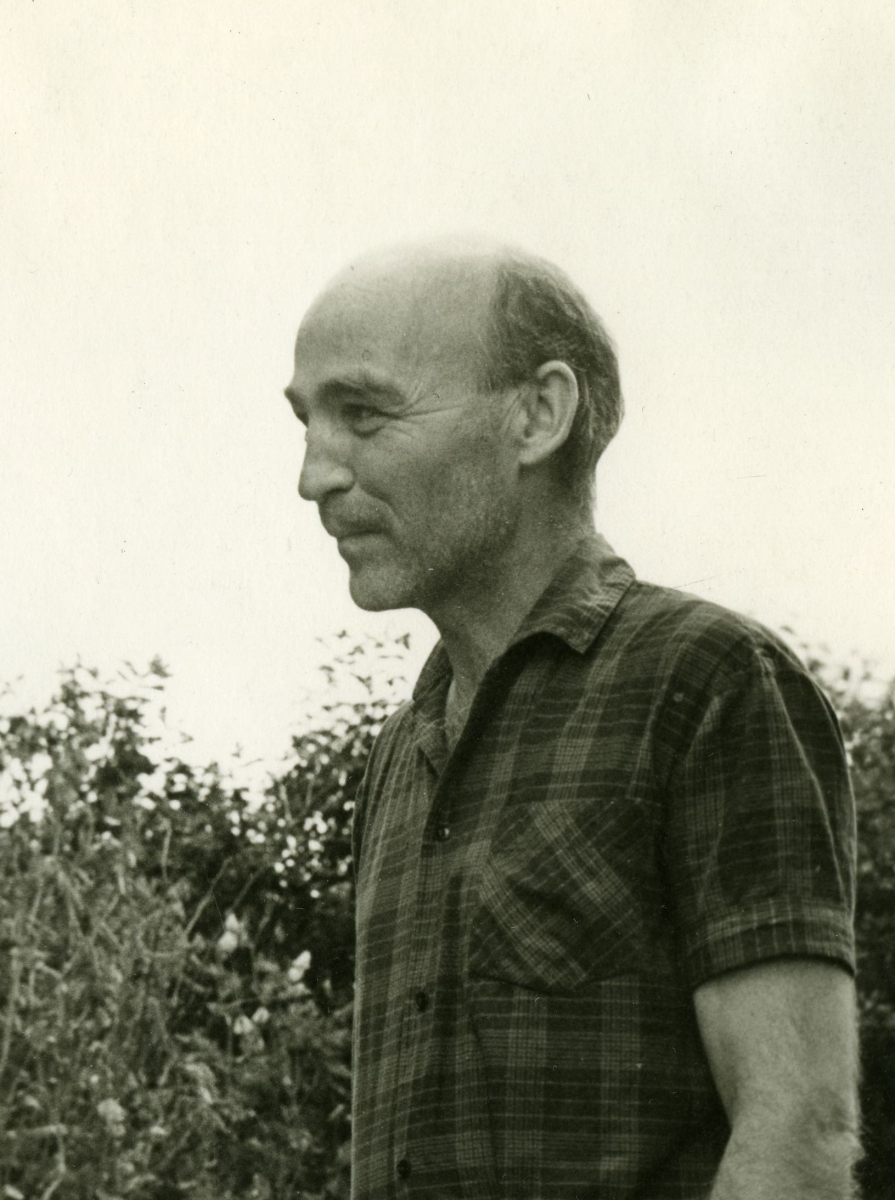
Ain Kaalep
Ain Kaalep (4. VI 1926 – 9. VI 2020) was an Estonian poet, playwright, critic, and translator, whose work strongly supports an awareness of language and form and a dialogue with world culture and literature. Whether applying a quantitative verse system or using canonical forms from different cultures, he expanded the possibilities of Estonian poetics through both his original works and translation activities. Contexts of world cultural heritage, history, and fine arts have strongly shaped the themes and motifs in Kaalep’s poetry, which also, along with its spirituality, does not want for humor or playfulness.
Kaalep, with Jaan Kross and Ellen Niit, is associated with moving Estonian poetry away from the canon of Socialist realism at the end of the 1950s and throughout the 1960s. His poem Lõikuskuu sonaat (‘An August Sonata’) published in the journal Looming in 1960 gave rise to disputes about the use of free verse and whether it was suitable for Soviet poetry.
Kaalep was born in Tartu, the son of a forestry scientist. He attended Hugo Treffner Gymnasium and entered the University of Tartu in 1943 to study Finno-Ugric languages. His studies were disrupted by the war, but he finally completed them in 1956. From 1943–1944, he was a volunteer in the Finnish Army’s infantry regiment 200, and from 1945–1946, he was imprisoned by the KGB. He worked in different occupations until he completed his studies, but in 1956, he became a professional writer. From 1960–1980, Kaalep worked at Elva High School and Tartu State University; he created the university’s center of translation studies that concentrated on translation of poetry and was its chairman from 1979–1982. From 1989–2001, he was editor-in-chief of Akadeemia, an interdisciplinary journal of culture and science. In 2002, Kaalep taught as a Professor of Liberal Arts at the University of Tartu. He has been a member of the Congress of Estonia and the Constitutional Assembly. Additionally, he has won several awards, such as the University of Tartu Award for Contribution to Estonian National Identity (2008) and the Ferdinand Johann Wiedemann Language Prize (2010). He has been selected as an honorary citizen of Elva (1998) and Tartu (2014). In 1996, he was awarded the Order of the National Coat of Arms, III Class.
Kaalep’s first poetry appeared in 1944 in the publication Kodutee (‘The Home Road’), written by the Estonian soldiers in Finland or “Finnish boys”. His first poetry collections, Samarkandi vihik (‘Notebook of Samarkand’) and Aomaastikud (‘Dawn Landscapes’), were published in 1962. In 1999, he published the Võru-dialect collection Haukamaa laulu’ (‘Songs of Haukamaa’). His poem Õnne piir (‘The Border of Happiness’) was awarded the Juhan Liiv Poetry Prize in 1984.
In 2008, he published the poetry collection Muusad ja maastikud. Luuletusi aastaist 1945–2008 (‘Muses and Landscapes. Poems from the Years 1945–2008’). As a translator, Kaalep has successfully and prolifically mediated older and newer classics of world literature into Estonian, including the antiquities (Sophocles, Euripides, Plautus, Horace, and others) as well as works by French (Charles Baudelaire, Jacques Prévert, and others), Spanish (Lope de Vega, Federico García Lorca, Vicente Aleixandre, César Vallejo, Octavio Paz, and others), Portuguese (Fernando Pessoa), Catalan (Salvador Espriu), German (Johann Wolfgang von Goethe, Friedrich Schiller, Heinrich Heine) and other language authors. A selection of Kaalep’s translated poems was published in two-volume collection Peegelmaastikud (‘Mirror Landscapes’, 1976, 1980). Kaalep has also written plays: Iidamast ja Aadamast ehk Antimantikulaator (‘Of Idam and of Adam or Antimanticulator’, 1967, published in the journal Mana in 1969), Mäe veri (Totomauna) (‘Blood of the Mountain (Totomauna)’, 1970, published in Looming in 2006), and Minu silmad ja sinu silmad (‘My Eyes and Your Eyes’, 1965). As a literary critic and essayist, Kaalep has published numerous articles in several publications. A significant part of these writings has been consolidated into the collection Kolm Lydiat (‘Three Lydias’, 1997).
M. U. (Translated by M. M.)
Books in Estonian
Poems
Aomaastikud. Tallinn: Eesti Riiklik Kirjastus, 1962, 112 lk.
Samarkandi vihik. Tallinn: Ajalehtede-Ajakirjade Kirjastus, 1962, 64 lk.
Järvemaastikud. Tallinn: Eesti Raamat, 1968, 99 lk.
Klaasmaastikud. Tallinn: Eesti Raamat, 1971, 124 lk.
Paani surm ja teisi luuletusi. Tallinn: Eesti Raamat, 1976, 90 lk.
Kuldne Aphrodite ja teisi luuletusi. Tallinn: Eesti Raamat, 1986, 91 lk.
Haukamaa laulu’. Võru: Võro Instituut, 1999, 48 lk.
Muusad ja maastikud: Luuletusi aastaist 1945–2008. Tallinn: Tänapäev, 2008, 589 lk.
Maiseid maastikke. Tartu: Eesti Kirjanduse Selts, 2013. [Audioraamat sarjast ‘Kirjanike hääled’.]
Short Prose
Jumalatosin. Tallinn: Kultuurileht (Loomingu Raamatukogu), 2008, 65 lk.
Non-fiction
Maavallast ja maailmakirjandusest: Vestlusi. Vaatlusi. Arvustusi. Käsitlusi. Tallinn: Eesti raamat, 1984, 327 lk.
Kolm Lydiat. Tartu: Ilmamaa, 1997, 598 lk.
Kodu kõikjal kaasas: mitme aastakümne kirjutisi. Tallinn: Tänapäev, 2013, 247 lk.



